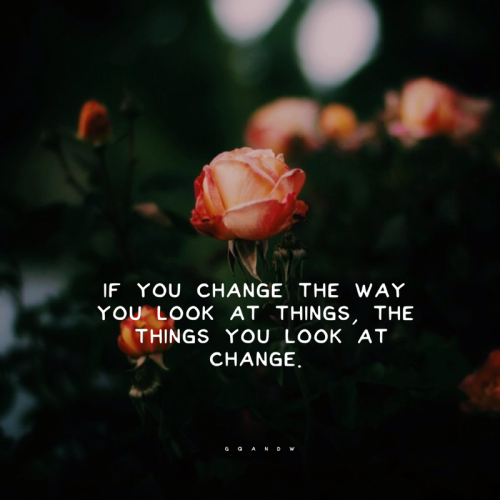#perception

Happiness is greater than sex. Sometimes sex is happiness. It’s scientifically proven sex can uplift your mood but happiness is what you truly perceive as blissful or ultimate joy. Even though I’ll happily fuck you until satisfied
Impression, Sunrise by Claude Monet, 1873.

Impression,Sunrise was painted by Claude Monet in 1873. It depicts the sunrise in French harbor of Le Havre in 1873.This painting is said to have started the impressionism movement. It might look less subtle with its short brush strokes but it never intended to be in the first place. Here Monet captured an atmospheric condition by painting vivid , adjacent and contrasting colours. It emphasizes the light itself and subjects are given less importance. The flickering light from sun in the early morning pierces through fog and reflected on the water. We see two silhoutted figures on the boat. The painting tries to capture the light from sun as it travels. The blotch of orange in the sky gives us more of a feel for nature. The seascape and horizon meets with no actual separation depicting the serenity of this moment in time. As my eyes wandered from left to right, i sense nothing but the vastness of time and shortness of human life. Maybe i am seeing things that are not there, maybe the illuminated atmosphere is what is missing from my life. I don’t know, i am a human being whose sense of perception can be deceived through the use of few brush strokes. But whatever that is , i tend to be grounded in reality and maybe Monet actually tries to send this message across instead of working on the details and subtlety of his paintngs. So in my opinion(which doesn’t matter as no one else’s opinion matter),this painting eerily produces a realist portrayal of nature and its relationship with humans. A moment or experience, far away from the cacophony of what lies ahead.
The ancient Chinese parable of a farmer as told by Alan Watts
Once upon a time there was a Chinese farmer whose horse ran away. That evening, all of his neighbors came around to commiserate. They said, “We are so sorry to hear your horse has run away. This is most unfortunate.” The farmer said, “Maybe.”
The next day the horse came back bringing seven wild horses with it, and in the evening everybody came back and said, “Oh, isn’t that lucky. What a great turn of events. You now have eight horses!” The farmer again said, “Maybe.”
The following day his son tried to break one of the horses, and while riding it, he was thrown and broke his leg. The neighbors then said, “Oh dear, that’s too bad,” and the farmer responded, “Maybe.”
The next day the conscription officers came around to conscript people into the army, and they rejected his son because he had a broken leg. Again all the neighbors came around and said, “Isn’t that great!” Again, he said, “Maybe.”
The whole process of nature is an integrated process of immense complexity, and it’s really impossible to tell whether anything that happens in it is good or bad — because you never know what will be the consequence of the misfortune; or, you never know what will be the consequences of good fortune.
Besides, there are hundreds of indications leading us to conclude that at every moment there is in us an infinity of perceptions, unaccompanied by awareness or reflection; that is, of alterations in the soul itself, of which we are unaware because these impressions are either too ·minute and too numerous, or else too unvarying, so that they are not sufficiently distinctive on their own. But when they are combined with others they do nevertheless have their effect and make themselves felt, at least confusedly, within the whole. This is how we become so accustomed to the motion of a mill or a waterfall, after living beside it for a while, that we pay no heed to it. Not that this motion ceases to strike on our sense-organs, or that something corresponding to it does not still occur in the soul because of the harmony between the soul and the body; but these impressions in the soul and the body, lacking the appeal of novelty, are not forceful enough to attract our attention and our memory, which are applied only to more compelling objects. Memory is needed for attention: when we are not alerted, so to speak, to pay heed to certain of our own present perceptions, we allow them to slip by unconsidered and even unnoticed. But if someone alerts us to them straight away, and makes us take note, for instance, of some noise which we have just heard, then we remember it and are aware of just having had some sense of it. Thus, we were not straight away aware of these perceptions, and we became aware of them only because we were alerted to them after an interval, however brief. To give a clearer idea of these minute perceptions which we are unable to pick out from the crowd, I like to use the example of the roaring noise of the sea which impresses itself on us when we are standing on the shore. To hear this noise as we do, we must hear the parts which make up this whole, that is the noise of each wave, although each of these little noises makes itself known only when combined confusedly with all the others, and would not be noticed if the wave which made it were by itself. We must be affected slightly by the motion of this wave, and have some perception of each of these noises, however faint they may be; otherwise there would be no perception of a hundred thousand waves, since a hundred thousand nothings cannot make something. Moreover, we never sleep so soundly that we do not have some feeble and confused ·sensation; and the loudest noise in the world would never waken us if we did not have some perception of its start, which is small, just as the strongest force in the world would never break a rope unless the least force strained it and stretched it slightly, even though that little lengthening which is produced is imperceptible. These minute perceptions, then, are more effective in their results than has been recognized. They constitute that je ne sais quoi, those flavours, those images of sensible qualities, vivid in the aggregate but confused as to the parts; those impressions which are made on us by the bodies around us and which involve the infinite; that connection that each being has with all the rest of the universe. It can even be said that by virtue of these minute perceptions the present is big with the future and burdened with the past, that all things harmonize - sympnoia panta, as Hippocrates put it - and that eyes as piercing as God’s could read in the lowliest substance the universe’s whole sequence of events - ‘What is, what was, and what will soon be brought in by the future’ [Virgil].
– Leibniz, New Essays on Human Understanding, “Preface”
And in consequence, all bodies feel the effects of everything that happens in the universe. Accordingly, someone who sees all could read in each all that happens throughout, and even what has happened or will happen, observing in the present that which is remote, be it in time or in place. Sympnoia panta, all things conspire, as Hippocrates said. But a soul can read in itself only that which is represented distinctly there; it cannot unfold all-at-once all of its complications, because they extend to infinity.
– Leibniz, Monadology #61
An sich wäre es möglich, daß zur Erhaltung des Lebenden gerade Grund-Irrthümer nöthig wären, und nicht „Grund-Wahrheiten“. Es könnte z.B. ein Dasein gedacht werden, in welchem Erkennen selber unmöglich wäre, weil ein Widerspruch zwischen absolut Flüssigem und der Erkenntniß besteht: in einer solchen Welt müßte ein lebendes Geschöpf erst an Dinge, an Dauer usw. glauben, um existiren zu können: der Irrthum wäre seine Existenz-Bedingung. Vielleicht ist es so.
– Nietzsche
[In itself it would be possible that, for the preservation of life, precisely fundamental errors would be necessary, and not “fundamental truths”. For example, one could imagine a being in which thinking itself was not possible, because a contradiction exists between the absolute flux and cognition. In such a world, a living being would have to first believe in things, persistence, etc. in order to exist: error would be its condition of existence. Perhaps this is the case.
Book Titles: I laughed into mine You just never know

Book TitleAt some point during the third or fourth revision I was searching the internet for music, just trying to relax an overstimulated mind and maybe find some inspiration. I was listening to Beatles songs that are somewhat rare, like demos and outtakes. I heard the book title in an interview with John Lennon and Paul…
A thought or two about mindfulness
Regardless of how mindful we are of it, we engage very deeply with every visage, deeper than we might know; everything we view engages us deeply, even for people who are unaware of it. That is why it’s not only important for us be careful what we view, but it is important for us to be careful of what we project. We create with our projections. We create with our…
@SXSW
This talk was perhaps one of the most interesting ones I went to the whole time and despite it being at 9:30 AM Sunday morning, I paid a shocking amount of attention to it. It has little to do with any specific job or career and everything to do with how to be a human.
—
For my whole life, I’ve struggled to accurately portray myself to others. The way I think I’m seen and how people actually see me is all wrong, and it’s only in the last year or two that I’ve realized how wrongly I’ve been portraying my true self to others.
I don’t remember who the presenter was here, but it doesn’t matter. I’m going to summarize each (different) point quickly because I was more hungover than I’ve been in years and my notes are a little all over the place.
—
(common sense point 1) Beauty is always in the eye of the perceiver. You do something, they interpret it. Nobody sees things as they are and there is never one thing our words and actions can mean.
(common sense point 2) What we see first in a person really shapes how we see them in the future.
Because I like CrossFit, and the open season just ended, I’ll use an appropriate example. Athlete 1 really excels at the open two years ago, and athlete 2 just started two months before the 2013 open and is far from excelling. You automatically see athlete 1 as a great athlete, even in the present day and still see athlete 2 as a lesser athlete. At the end of the present open, athlete 2′s overall ranking is better than athlete 1′s and you’re surprised, even if athlete 2 has better numbers and scores all around and put in much more time in the gym in the last year than athlete 1 and it shouldn’t be a surprise at all. Your perceptions of athlete 1 and 2 from two years prior are still affecting how you view them.
(In CrossFit land, first impressions don’t last very long once an athlete proves his or her fitness, but they are indeed still there. It took Rich Froning a whole year to prove his entire fitness after his inability to climb a rope in 2010.)
(common sense point 3)Unconsciously deciding if a person can be a friend or not as soon as you meet someone based on two things: are they warm or cold, and are they competent or incompetent?
The Simpsons example, because.
Lisa. Warm and competent. People trust you.
Mr. Burns. Cold and competent. People won’t trust you.
Homer. Warm, but incompetent.
Mo. Cold, and also incompetent.
To be honest, I probably come off as a Mr. Burns a lot. I like to pretend I have my shit together and that I know my shit. But people don’t trust this. People trust someone who is smart but also human and welcoming. We all know Mr. Burns is a horrible person. Don’t be him.
The hard thing is, it’s hard to come off as a smart human who has their shit together, without coming off as a selfish smart ass know it all.
(common sense point 4) Power lens.
Leaders see everyone the same but with different stereotypes. Leaders really don’t care how awesome we (the little people) think they are or how great we do at something. They really don’t. They care if we can help them with something. They care if we can help them reach a goal. Align your goals with theirs, let them know you can help them, and that’s when they’ll start seeing you as an individual and less like “one of those people” with whatever stereotype they choose to give you.
(common sense point 5) Ego lens.
If a person is relevant to you, and close to you, they’re considered a high threat. Take two sisters or friends who are both athletes in the same sport. Constant competitiveness.
If a person is relevant to you, but not close, they’re only a moderate threat. Two graphic designers with similar career goals and similar design interests, but they live in different cities (or countries) and have no idea who each other are. Both are still capable of being equally successful but both could potentially be fighting for the same job at some point.
If a person is not relevant, but close to you, they’re a moderate threat. Two people who are successful but very different. Two siblings with very different career goals. They can either enjoy each other’s successes or be envious. This is an ideal place to be if you choose to enjoy each other.
If a person is not relevant to you, and not close to you. No matter how awesome this person is, there is no threat to you. To put it nicely, you should give no fucks about this person.
So how do you feel less threatened by people? Decrease relevance. Find your own thing to distinguish you from people you are close to. If you can’t decrease relevancy or closeness, they will eventually start to see you negatively. Get over this by creating an us… a team. Crossfitters (of course I’m using this example) do this well by celebrating everyone’s individual successes. Although crossfitters are still individually competitive in nature, the bulk of us work as a team and consider everyone as one group of people.
Drumknott was one of those people with no discernable character.
Terry Pratchett, The Truth
“Good heavens, potatoesare worth more than gold!”
“Surely not!”
“If you were shipwrecked on a desert island, what would you prefer, a bag of potatoes or a bag of gold?”
“Yes, but a desert island isn’t Ankh-Morpork!”
“And that proves gold is only valuable because we agree it is, right? It’s just a dream. But a potato is always worth a potato, anywhere. Add a knob of butter and a pinch of salt and you’ve got a meal, anywhere.Bury gold in the ground and you’ll be worrying about thieves forever. Bury a potato and in due season you could be looking at a dividend of a thousand percent.”
Terry Pratchett, Making Money
“What you most need will be found where youleast want to look.”
~Carl Jung
“Unconditional love really exists in each of us. It is part of our deep inner being. It is not so much an active emotion as a state of being. It is not ‘I love you’ for this or that reason, not ‘I love you if you love me.’ It is love for no reason, love without an object.”
~Ram Dass

««One LOVE, we are all one— let us unite. ✨»»

««Little, simple reminders that mean the most.»»
Always Speak Your Truth—
You will trigger a lot of people, but you will free more souls than you can possibly imagine.
And those who mind won’t matter because those who matter, won’t mind.
Never hold back, be truthful, be raw, be full, be grand! Those who are your kind, your tribe, who hold your depth and understand your madness will find you, and those who are not will vanish from your existence.
You will create Heaven on Earth by continuing to be your unique authentic self.
“Rule your mind or it will rule you.”
~Horace
“In anger, we should refrain from both speechandaction.”
~Pythagoras

««We all walk on our own paths. ♀️ All connections are temporary, and will inevitably end one day. We must find comfort without our own journey, because our path also ends in solitude in the same fashion of which we came into the world. ☯️ Peace and love to all. ❤️»»
“No man ever steps in the same river twice, for it is not the same river and he is not the same man.”
~Heraclitus
“Donot remind the world that it is sick and troubled.
Remind it that it is BeautifulandFree.”
~Mooji
“You need to belong to yourself, and let others belong to themselves too. You need to be freeanddetached from things and your surroundings. You need to build your home in your own simple existence, not in friends, lovers, your career or material belongings, because these are things that you will lose one day.”


